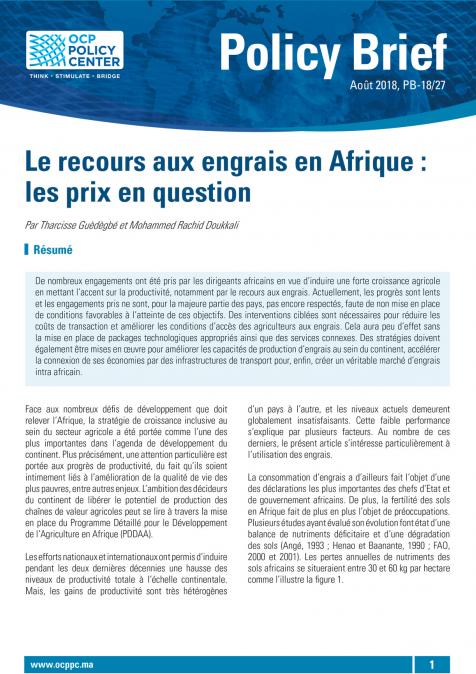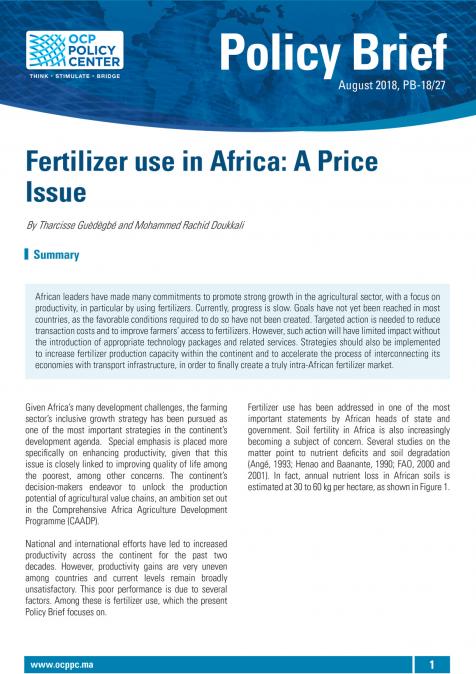Institutional Framework Conditions for the Promotion of Private Sector Capacity Development (CD) for Agricultural Innovation in Morocco
The Policy Center for the New South in collaboration with the Center for Corporate Responsibility and Sustainability, organize a webinar on the Institutional Framework Conditions for the Promotion of Private Sector Capacity Development (CD) for Agricultural Innovation in Morocco. The webinar toke place March 14th at 14:00 (GMT +1).
Nowadays, the importance of investing in capacity development (CD) for agricultural innovation is indisputable. It addresses the challenge of integrating farmers into formal value chains and enabling domestic farming to become more climate resilient, productive and sustainable. In other words, CD is at the heart of the nexus between food security and climate change, which has been emphasized at the Climate Conference in Sharm-el-Sheik (COP-27) in November 2022. However, it is often not clear how effective capacity development is and what kind of institutional framework conditions are required to make it more responsive to what farmers need.
In order to learn more about these critical questions, CCRS has conducted national stakeholders surveys in four African countries with Morocco representing the region of Northern Africa. This survey with Moroccon stakeholders has been conducted in strong collaboration with PCN and the analysis of the survey results reveal perception patterns that diverge substantially from the stakeholder perception in the three other country surveys. They also reflect the distinct qualities of the Moroccan agricultural economy and the role of the public sector, not just as a provider of public sector CD but also an enabler of private sector CD.













